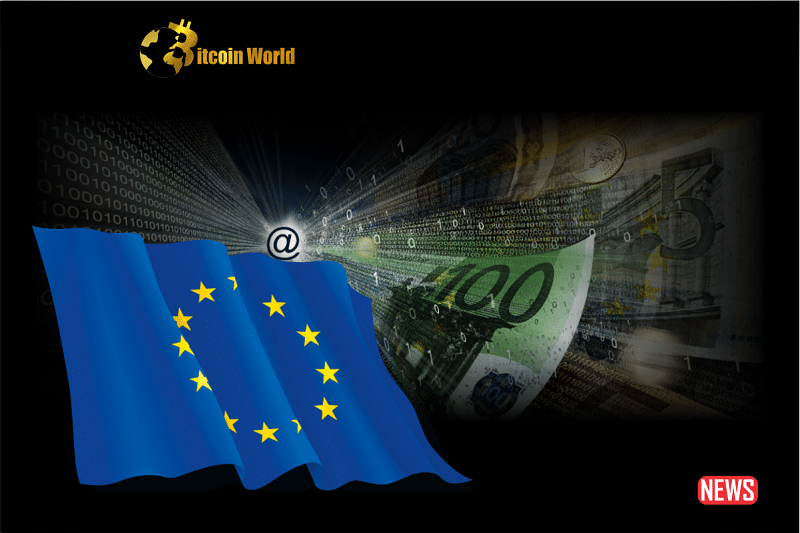Ever wondered what the future of money in Europe might look like? Or how artificial intelligence will be governed? Well, the European Union is actively shaping these very landscapes! Let’s dive into the latest developments surrounding the proposed regulations for the “digital euro” and the groundbreaking Artificial Intelligence (AI) Act.
The Digital Euro: A New Era for Eurozone Finance?
Imagine a digital version of the euro, issued by the European Central Bank (ECB). That’s the concept behind the digital euro, and recent moves by EU lawmakers signal that it’s becoming more of a reality. But what exactly is being proposed?
- Draft Proposal on the Table: A recent Bloomberg report highlighted a draft proposal from the European Commission outlining the potential rules of the game for the digital euro.
- Financial Stability in Focus: A key concern is maintaining financial stability within the eurozone. The proposal suggests putting limits on how much digital euro can be held or used to prevent large shifts of money that could destabilize the financial system.
- Legal Tender Status: Interestingly, the draft indicates that accepting the digital euro could become mandatory, granting it legal tender status. However, there might be exceptions where businesses or individuals could decline it under specific circumstances.
Control and Controversy: What’s the Buzz?
The introduction of any central bank digital currency (CBDC), including the digital euro, naturally sparks debate, particularly within the cryptocurrency community. The core of the discussion often revolves around:
- Government Oversight: CBDCs inherently give central banks more direct control over the monetary system, leading to concerns about potential surveillance and restrictions on financial freedom.
- Privacy Implications: How will transactions be tracked? What data will be collected? These are crucial questions that need careful consideration.
It’s important to remember that this is still a draft proposal, and things could change before its official presentation. EU policymakers themselves have expressed differing opinions on the necessity and design of a digital euro, indicating a healthy and ongoing debate.
The AI Act: Setting Boundaries for Artificial Intelligence
In a parallel development, the European Parliament has taken a significant step forward with the Artificial Intelligence (AI) Act. This legislation aims to establish a framework for the development and deployment of AI within the EU.
What Does the AI Act Propose?
The Act takes a risk-based approach, categorizing AI systems based on their potential impact. Here’s a breakdown:
- Prohibited AI: Certain AI applications deemed too risky or unethical will be banned outright. This includes discriminatory uses like some forms of predictive policing and biometric identification systems used for mass surveillance.
- High-Risk AI: AI systems that could significantly impact health, safety, the environment, elections, or even social media content recommendations will be classified as “high risk.” These systems will face stringent requirements and assessments before they can be used.
- Obligations for Foundational Models: Providers of foundational AI models (like the technology behind ChatGPT) will need to assess risks associated with their products and register before entering the EU market.
- Generative AI Rules: If you’re developing generative AI, you’ll need to provide summaries of the copyrighted data used to train your models and implement safeguards against generating illegal content.
Why is This Important?
The AI Act reflects a proactive approach to managing the risks associated with this rapidly evolving technology. It aims to foster innovation while ensuring ethical considerations and fundamental rights are protected.
Digital Euro and AI: A Combined Force?
While developed separately, the regulations for the digital euro and AI intersect in interesting ways. For instance, AI could play a role in managing and securing the digital euro network, while the ethical considerations outlined in the AI Act could influence the development of AI-powered financial services related to the digital euro.
Looking Ahead: What’s Next?
The journey for both the digital euro and the AI Act is far from over. Expect ongoing discussions, potential amendments, and further refinements as policymakers work towards finalizing these crucial regulations. The coming months will be pivotal in shaping the EU’s digital future.
In Conclusion: Navigating the Digital Frontier
The EU’s efforts to regulate the digital euro and artificial intelligence demonstrate a commitment to embracing technological advancements responsibly. While debates and adjustments are expected, these initiatives signal a significant step towards defining the rules of engagement for the digital age within Europe. Keeping a close eye on these developments is crucial for anyone interested in the future of finance, technology, and regulation.
Disclaimer: The information provided is not trading advice, Bitcoinworld.co.in holds no liability for any investments made based on the information provided on this page. We strongly recommend independent research and/or consultation with a qualified professional before making any investment decisions.




